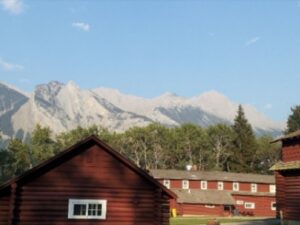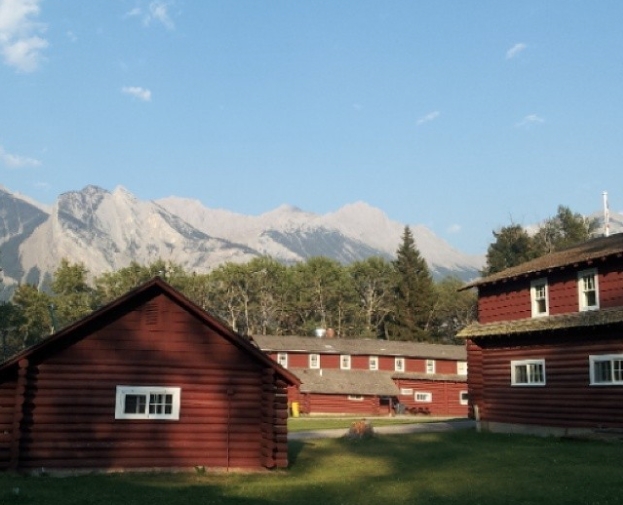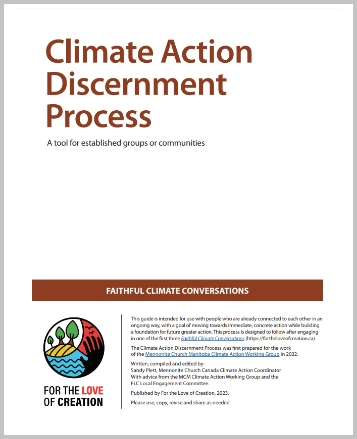Centering Indigenous Ways of Knowing

Indigenous peoples’ teachings can guide us in learning how to live in harmony with Mother Earth, taking only what we need, conscious of the impact of our actions on seven generations to come.
Indigenous Wisdom: Living in Harmony with Mother Earth (KAIROS, 2017)
KAIROS’ first Climate Action Week of 2023 kicks off today! In response to the release of the IPCC’s Synthesis Report earlier this year, climate scientist Katharine Hayhoe said, “every bit of warming matters, every action matters, every choice matters. The power is in our hands to ensure a different future.” Climate Action Week is here to motivate, deepen understanding and support collective action for the planet. KAIROS also hopes to deepen and advance discussion on the interconnection between climate justice and decolonization.
Our theme for the week is Decolonizing Climate Action: Centering Indigenous Ways of Knowing. Last year, the International Labour Organization reported growing evidence that “[I]ndigenous peoples’ knowledge, practices, and ways of living are instrumental for environmental conservation, maintaining biodiversity, furthering green jobs, enhancing resilience, and addressing climate change.”
There are so many examples of this Indigenous knowledge in action and Indigenous leaders showing the world another way is possible. And yet, Indigenous voices continue to be sidelined at climate negotiations, land defenders continue to be criminalized, and Indigenous ways of being continue to be threatened by resource extraction, and more.
The events, blogs, and other content this week will demonstrate the integral role of Indigenous peoples’ teachings, knowledge, and ways of being in addressing climate change. We will discuss ways to politically advocate for the need to center Indigenous ways of knowing in climate policy.
To get the week started, please read a spirited reflection on this week’s theme from Caroline Sharp (KAIROS Blanket Exercise team member), where she explores connections between wildfires and Traditional Ecological Knowledge (TEK).
All is Alive – by Caroline Sharp

Nearly a decade ago, I had the pleasure of connecting with some staff at the Palisades Center in Jasper National Park. One thing apparent to me then was an obvious disconnect and lingering tension between park staff and the Indigenous people with whom I was visiting. Although they shared related stories of the area’s past, my Indigenous colleagues felt that they were not communicating the full picture. They felt there was an environmental aspect to colonialism not being addressed.
When settlers took over the area all those years ago, they did not listen to the deep ecological knowledge held by Indigenous peoples. New kinds of trees were planted in with the old. Deforestation of old growth trees threatened the life that this part of the land held. Antlered animals found it increasingly difficult to navigate between the closely planted trees and this made them easier targets. At the Palisades, we also learned how to read the land based on how water travels and what that meant for deer and wolf populations in the area. We also discussed another hot topic – controlled burns of the forest.
Now, wildfires spread out of control every summer affecting everyone and everything around it. There is too much smoke and farmers in the area are feeling the pinch. People and creatures are being evacuated from their homes and, because everything is connected, the entire world feels the pain of these fires – a result of climate change and ignoring the Traditional Ecological Knowledge (TEK) of Indigenous communities in the area.
Pre colonization, sections of the forest were made to burn in a controlled fashion. This allowed for enhancement of habitat, eradication of diseases, which stimulated the growth of herbs and berries and reduced the risk of catastrophic wildfires. TEK is passed down from generation to generation and is practiced with great wisdom and care. Many, if not all, First Nations, Métis, and Inuit cultures have a deep connection with the land, believing in an animate world where everything is connected.
As Christians, we too are called to care for the land. Sadly, many of us have lost this deep connection to it and knowledge of the interconnection of everything. Wise men watched the stars for signs of what was to come, which led them to Jesus. Moses found a secluded spot high in the mountains where he communicated with God. We once had dreams and visions, but the noise of today’s world has long drowned out our ancestral knowledge of the land. Also, non-Indigenous Christians in North America are no longer on their ancestral lands, which could potentially add to this disconnect. We no longer hold knowledge of the land that has been handed down for thousands of years.
What is needed here is a lesson in humility. We now recognize that our practices were not the best prescription for this land and although we have begun to discuss how to care for Turtle Island with Indigenous communities, perhaps we need to lean more heavily on the TEK of local Indigenous communities.
Whenever possible, we need to help amply these voices, just as Moses needed Aaron to advocate for him. But first, we need to build up the relationships between Indigenous and non-Indigenous people. There are many ways you can do this: Check out your local Indigenous Friendship Centers and attend events like Pow Wows. Find an Elder to talk to and learn about customs and protocols. Listen to their knowledge and stories and you will soon learn about their connection to the world around. This may inspire you to do the same, and on your next walk in the woods, you too will understand the voice of our world. All is alive, all is impacted by our actions, all needs to be held in a careful balance, and we can all do this together!

Resource Feature: The Climate Action Discernment Process guide is intended for use with people who are already connected to each other in an ongoing way, with a goal of moving towards immediate, concrete action while building a foundation for future greater action. This process is designed to proceed after engaging in one of the first three Faithful Climate Conversations. The Climate Action Discernment Process was first prepared for the work of the Mennonite Church Manitoba Climate Action Working Group in 2022.
TOMORROW: Come back to the blog tomorrow to learn more about Indigenous-led conservation and how to support Indigenous Guardians.
